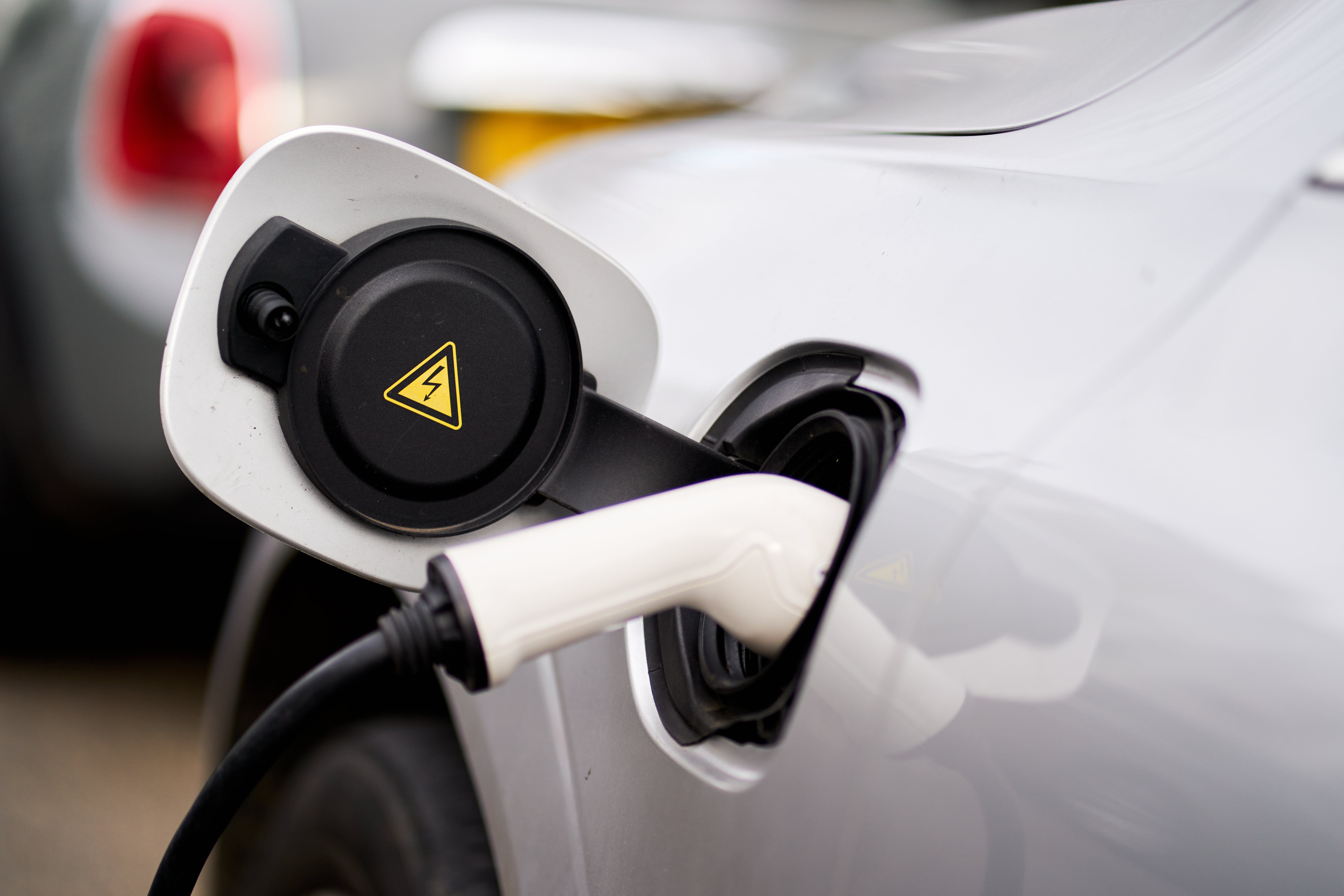Grants for new electric cars scrapped as funding is ‘refocused’
Drivers could previously claim up to £1,500 towards the cost of a plug-in car costing less than £32,000.

Your support helps us to tell the story
This election is still a dead heat, according to most polls. In a fight with such wafer-thin margins, we need reporters on the ground talking to the people Trump and Harris are courting. Your support allows us to keep sending journalists to the story.
The Independent is trusted by 27 million Americans from across the entire political spectrum every month. Unlike many other quality news outlets, we choose not to lock you out of our reporting and analysis with paywalls. But quality journalism must still be paid for.
Help us keep bring these critical stories to light. Your support makes all the difference.
Grants for new electric cars have been scrapped, the Department for Transport (DfT) has announced.
Drivers could previously claim up to £1,500 towards the cost of a plug-in car costing less than £32,000.
The automotive industry and motoring groups criticised the decision, with the AA warning that many motorists being forced to wait for a new electric car due to global supply constraints will lose out.
The DfT said the “success” of the Plug-in Car Grant means the Government will now “refocus” the funding to encourage users of other vehicles to make the switch to electric.
Sales of fully electric new cars have risen from fewer than 1,000 in 2011 to nearly 100,000 in the first five months of 2022.
Existing applications for the grant “will continue to be honoured”, the DfT said.
Transport minister Trudy Harrison said: ”The Government continues to invest record amounts in the transition to EVs (electric vehicles), with £2.5 billion injected since 2020, and has set the most ambitious phase-out dates for new diesel and petrol sales of any major country.
“But government funding must always be invested where it has the highest impact if that success story is to continue.
“Having successfully kickstarted the electric car market, we now want to use Plug-in Grants to match that success across other vehicle types, from taxis to delivery vans and everything in between, to help make the switch to zero emission travel cheaper and easier.”
Drivers, and indeed many fleets, planning to make the switch to EV, may now back out until they can find more cash
Sales of new petrol and diesel cars and vans in the UK will be banned from 2030.
AA president Edmund King said the grants were “essential for many drivers making the switch from petrol and diesel”.
He went on: “The plug has been pulled at the wrong time on this important grant before many users, still waiting for delayed EVs due to global shortages, have made the change.
“Drivers, and indeed many fleets, planning to make the switch to EV, may now back out until they can find more cash.
“With record prices at the pumps and household budgets already stretched, removing the last incentive to go electric could stall this important move to electrification.”
Mike Hawes, chief executive of trade body the Society of Motor Manufacturers and Traders (SMMT), said the decision “sends the wrong message” to drivers and the automotive industry.
“Whilst we welcome Government’s continued support for new electric van, taxi and adapted vehicle buyers, we are now the only major European market to have zero upfront purchase incentives for EV car buyers, yet the most ambitious plans for uptake,” he said.
“With the sector not yet in recovery, and all manufacturers about to be mandated to sell significantly more EVs than current demand indicates, this decision comes at the worst possible time.”
Ginny Buckley, founder of EV marketplace Electrifying.com, warned that electric cars are “already out of reach for many hard-working families”.
She fears that scrapping the grant “pushes us further down the road of becoming a two-tier nation” when it comes to ownership of EVs.